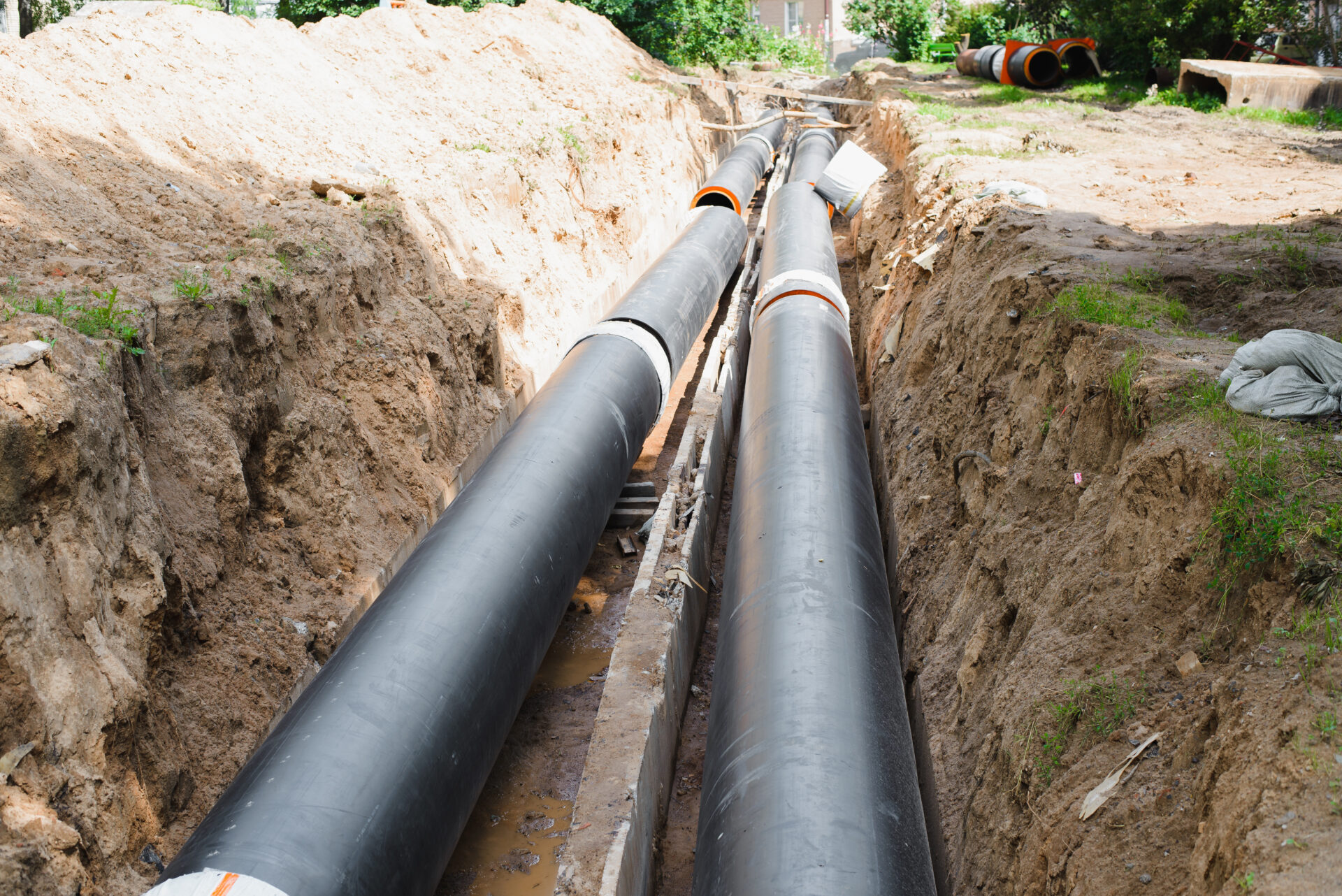
When you run a faucet, drain a bath, or flush a toilet, it is easy to think nothing of it; out of sight out of mind. But of course, we all know it’s going somewhere, and the way it gets there is through the unseen heroes of every home: sewer lines.
Maintaining a healthy sewer line is crucial for the comfort and hygiene of your home. An ignored or overlooked issue, on the other hand, can evolve into a costly and disastrous situation. This article aims to guide you through the signs that indicate your sewer line might need immediate attention, either for repair or replacement.
Common Causes of Sewer Line Damage
Understanding the causes of sewer line damage can help you take preventative measures. Some of the most common culprits are:
Freezing pipes: Although this is only a risk for part of the year, freezing pipes can be one of the most destructive forms of sewer pipe damage. A sudden cold front can cause the water inside pipes to freeze and expand nearly 10 percent in volume, resulting in a crack and a catastrophic mess downstream.
Tree Roots: Tree roots are often far-reaching and very strong, effectively strangling sewer lines in their path. This is one of the more hidden causes to sewer pipe failure, so keeping an eye on areas that may have roots and pipes intersecting will help you spot issues quickly.
Blockages: It’s not just toys and other foreign objects that can be the culprit for blocked sewer lines. Over time grease and waste can accumulate in the pipes and stop the flow of things, and it doesn’t take much before blockages can turn into serious restrictions to water flow. In other words: blockages can turn into a big mess.
Corrosion: Not as common in modern homes, but still part of many sewer systems, metal pipes will only last so long. Over time corrosion begins to eat away at the pipe, leaving weak points susceptible to further damage.
3 Early Warning Signs of Sewer Line Problems
If you notice any of the following early warning signs, it’s time to take immediate action:
- Slow Draining: If your sinks, bathtubs, or toilets are draining more slowly than usual, it could be indicative of a sewer line issue.
- Foul Odors: Unpleasant smells coming from your drains are also a sign that something in your sewer system may not be functioning properly.
- Frequent Clogs or Backups: Recurring issues may indicate a more serious sewer line problem. If you have tried to solve a smaller nuisance on your own over and over again to no avail, consider reaching out to a local plumber for professional consultation.
Advanced Warning Signs
If you miss or ignore the early signs things are likely to get worse. Here are a few things that, if noticed, should be immediately addressed:
- Soggy or Indented Lawn: A damaged underground sewer line that has been leaking for a longer period of time will begin to show itself on the surface.
- Rodent and Pest Infestation: A broken sewer line can attract rodents and pests. If you have difficulties keeping these unwanted visitors away it may be indicative of a sewer line issue.
- Unexplained Increase in Water Bills: A leaking or broken sewer line means water is running all the time (as if you left the faucet on). Keep an eye on your water bill and make sure not to ignore abnormally high prices.
Should You Repair Or Replace a Sewer Line?
The decision between repair and replacement depends on the severity of the issue. While simple blockages can often be cleared, more complex issues like extensive corrosion may mean a full replacement is necessary. Yes, that does mean a bigger price tag up front, but running the risk of further plumbing damage can easily turn into a significant financial hit. At the end of the day, it’s always a good idea to get professional help.
Frequently Asked Questions (FAQs)
Q: How can I prevent sewer line blockages?
A: Regular maintenance and avoiding the disposal of grease, hair, and other debris down the drain can help prevent blockages.
Q: What is the lifespan of a typical sewer line?
A: The lifespan can vary based on material but generally ranges from 50 to 100 years.
Q: Is trenchless sewer line replacement a good option?
A: Trenchless methods are less invasive but may not be suitable for all situations. A professional assessment is needed to determine the best approach.
Have More Questions?
If you’re experiencing any of these warning signs, don’t hesitate to reach out for professional advice. Contact our expert team at Accurate Plumbing today for reliable sewer line repair and replacement services!
